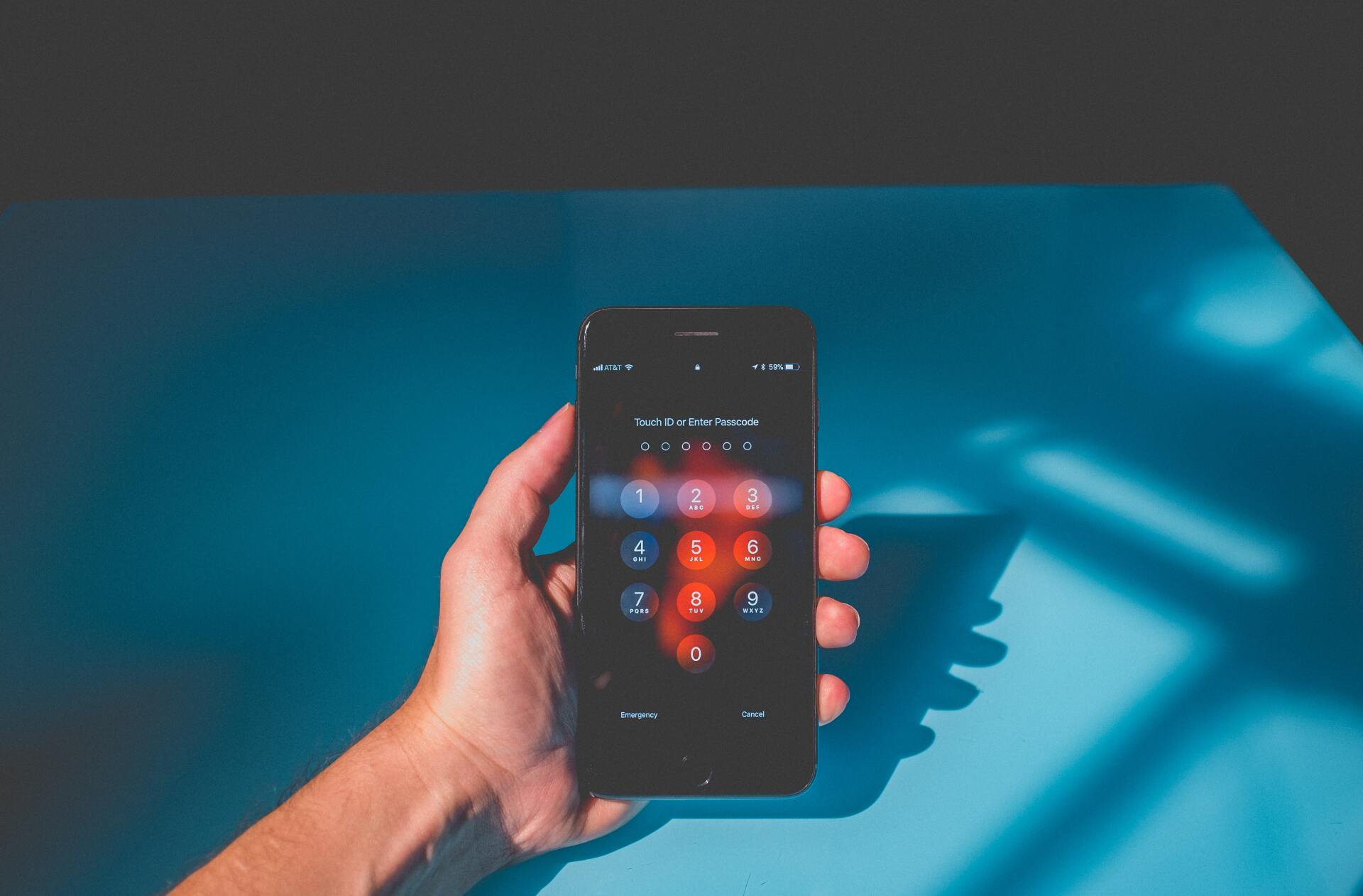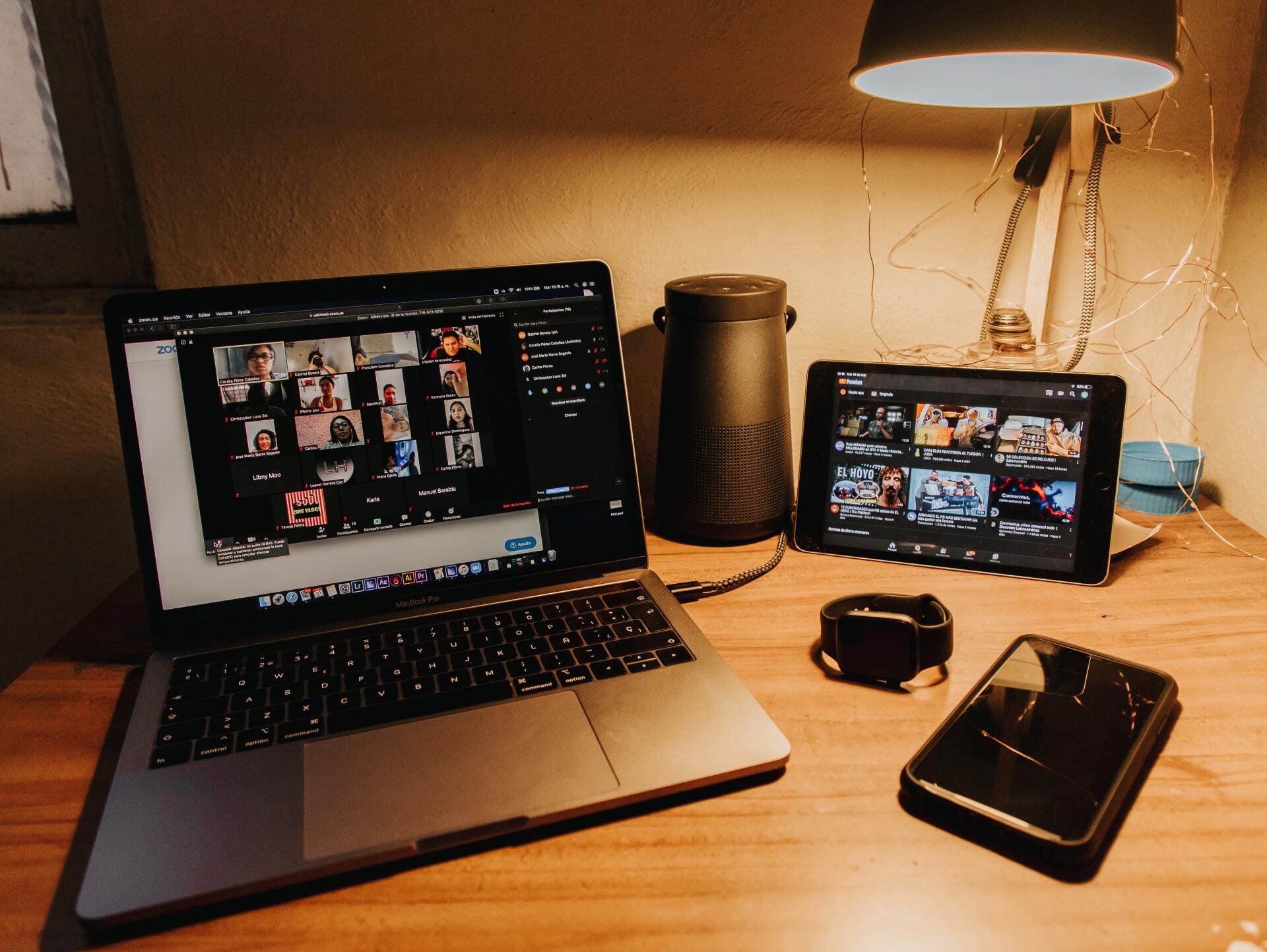Our Purpose!
To be the Program Catalyst and
Expert Knowledge Partner
to enabling and delivering the
Future Work
and Skills which instructs and informs Industry, Commerce and Policy Makers to invest in Workforce Transformation Research and Innovation.
Our foundations are built in Industry, Academic Research and Creative Innovation to Re-imagine Disruptive ways of delivering Human Centric Workplace
Programs.
The Future.Now!
The world we now live in has Accelerated the need to re-focus on the Future.Now. An organisations ability to Innovative, Compete and Thrive is now driven by its Resiliency
and ability to Re-invent
the space within we work, play and visit.
Our focus is to align to the key required Skills of the Future
of Creativity, Collaboration, Communication and Critical Thinking and which also supports the Research and Innovation priorities of organisations such as the European Commission, the World Economic Forum and the OECD for the Future of Work.
Our Perspectives, News and Insights.
The Perspectives Series explores different Points of View,
Future of Work.Space
Research and Current Discourse whilst Encouraging New Inclusive Ways of Thinking about the Future of, Work, Digital, Learning and Society.... to Provoke and Encourage Organisations own Trans-Media Programs, Exploration of Immersive Experiences and Interest in New Research and Innovation.

Let us first start by clarifying, in the light of European legislation, what is meant by personal data. Personal data is “any information about a specific person, identified or identifiable, called the data subject.” Some examples are, the name of a person, their address, income or computer data such as the IP (Internet Protocol) address. The question that now arises is, shouldn't this data have always been protected and where did the need to protect it come from. From the moment we put our data on paper, on a website, or on social networks, we are no longer responsible for them. Until relatively recently, we relied on good faith and the protection of the platforms or companies we gave our data to. And it is far from the truth to say that there have been no breaches of data protection. Furthermore, the problem has worsened dramatically with the emergence of the internet and social networks. We have given our entire lives to private companies, and All these platforms are free for users. Although the revenue of these flagship companies is generated mainly through advertising, many of us worry what these companies know about us. We think that they might have our search engine history, our correspondence, our day-to-day activities duly scheduled. Or that social networks could expose our friendships, our tastes and interests, even our opinions, whether they have a political or religious connotation, among others. All of us assume that our personal data is very desirable for companies and networks so they target specific audiences in an effective and profitable way. In the wake of the Cambridge Analytica Scandal, the USA decided to take action on the regulation and data protection of these large companies. Following this example, the EU created the GDPR, an essential document in the protection of European citizens. This regulation applies to all companies that hold personal data within the European area. It requires meticulous regulation in corporate policies. For example in terms of equal opportunities and non-discrimination, personal data cannot be processed on: "racial or ethnic origin; sexual orientation, political opinions, religious or philosophical beliefs, union membership, genetic, biometric and health-related data, except rare specific cases. The regulation pushes the importance of maximum security and data protection within the IT and security policy so that everyone can protect and trust each other. Therefore, it is necessary to carefully comply with the GDPR and simultaneously integrate and reflect these same rules in corporate policies. Thank you for reading and lets hope that our protection will be increasingly valued and debated!

First of all, zoom calls for work are now a very frequent occurrence and people are having to spend time staring at their zoom screens for hours, as opposed to traditional face to face meetings. “Remote working generally leads to increased tiredness or Zoom fatigue for employees and a greater need for longer recovery time compared with on-site office work.” This leads to a fatigued feeling due to the consistent digital meetings and work calls. Not only that, but we are putting more of a priority on digital software like slack and teams etc, for our workday to run smoothly, as we can no longer simply ask someone a question aloud in the office setting. Netflix also has a big part to play in the fatigue feeling. “Netflix saw a massive spike in subscribers in February and March as people everywhere started staying home more amid the coronavirus pandemic.” With many of us going on Netflix marathons to pass the time during lockdown, we are again being stuck in the world of screens. This has continued due to the continued lockdowns throughout 2020 and now in 2021. Despite the fact that Netflix has amazing entertainment value, it brings us back to having our eyes constantly on a screen even after the hours of zoom calls during our workday. And it has the appeal of being so easily accessible and entertaining, that despite the fact that many of us feel the digital exhaustion, we continue using platforms like this regularly out of convenience. Face time calls are also now a vital way that we communicate with our loved ones as many of which we aren’t able to see outside of our phones. Again, it’s easy and convenient and very useful that we can see the ones we care about in an instant on our devices. But this generates added screen time as we are using our phones, laptops and tablets to communicate with one another. “While social distancing, we can’t walk up to a colleague’s desk, go out with friends, attend an exercise class, or take the kids to school. Instead, we log on to Zoom, FaceTime, Skype, WhatsApp or Hangouts—and turn in-person events into pixels on a screen.” Whether we are working or winding down, our worlds are revolving around our screens because of the many uses technology has and how useful it is during the lockdown world. It’s not hard to see that our world is overly attached to the digital sphere. But after a while, many of us can mentally feel the strain that is has on our wellbeing. What do you feel is the key way in which you experience that digital fatigue feeling? 1 McCulloch, Adam. 2020. ‘Zoom fatigue’ is a thing, study shows.’ Personnel Today. Available at: https://www.personneltoday.com/hr/zoom-fatigue-is-a-thing-study-shows/ 2 Levy, Adam. 2020. ‘Are Subscribers Finally Feeling Netflix Fatigue.’ The Motley Fool. Available at: https://www.fool.com/investing/2020/07/15/are-subscribers-finally-feeling-netflix-fatigue.aspx 3 Nguyen, Nicole. 2020. ‘The Joy—and Exhaustion—of Nonstop Video Chatting: a Guide’. The Wall Street Journal. Available at: https://www.wsj.com/articles/the-joyand-exhaustionof-nonstop-video-chatting-a-guide-11585143549

Due to our new masked world, we now all know what it feels like to not be sure who is who, not to feel confident that we heard what other people said - and to worry we may not have understood what others meant. Everything suddenly feels more stressful, takes longer and is more tiring. Imagine feeling this way without a pandemic. Imagine this being your reality throughout your whole life. If you ask an autistic person what their life was like before Covid, you will hear that most Autistic people have spent their whole lives “wearing masks”: to behave as others do because that is the only way they will be able to fit in and get on. The stress and trauma of this is often debilitating and traumatizing. Furthermore, Autistic employment rates have declined, exclusion from education has increased, autistic poor health, mental health and mortality rates have increased. And what remains starkly the same is that very few people championing change are autistic; only a few autistic people are being trained or paid to drive these changes, and the meaningful and sustainable impact of change in terms of autistic people's daily lives remains negligible. If you ask an autistic person what their life has been like during Covid, you will not be surprised to learn that it has been as very difficult: While autistic people are permitted not to wear masks, many end up wearing them anyway because mask discomfort, even exacerbated by autistic sensory experience, is less traumatizing than the negative assumptions of others if masks are not worn. Autistic social isolation is ignored as the media focuses instead on those who are experiencing social isolation for the first time; meanwhile autistic people who have experienced social isolation the longest and have the least access to the services they need. Additionally, autistic people now face greater barriers than ever to accessing mental health support. It’s ironic that this is happening at the very time when we have the most insight into the devastating impact of long-term social isolation on mental health and the most time to do something about it. But it does not have to be like this. This pandemic has reminded us that together we can do amazing things. We can help others and ourselves to make things better. The attitudes we have, decisions we make, and actions we take together can transform autistic pain, loss and hardship into autistic agency, autonomy and independence. As Lockdown restrictions ease and we enjoy the benefits and relief of this, let’s all make time to do more to ensure autistic people experience the same sense of freedom. Through building back better with autistic people, we can create an inclusive, sustainable future where we can all, finally, be unmasked. “Your customs are strange to me, though I was born among them. I fear your people, your places and you. Accept me, as I accept you, and understand that I am different.” Excerpt from a poem by an autistic woman

Despite Zoom being very helpful in many ways, some aspects of Zoom are not inclusive nor accessible to all users. Those who struggle with sensory processing (e.g. autistic people) may experience an ‘overload’ from the multi-modal input, leading to an increase in stress and anxiety and often withdrawal. Users can of course, control sensory inputs by altering their settings, but for those who elect not to show their faces on screen, opting out of this requires a kind of public declaration. On group Zoom calls, for instance, should users turn their cameras off, their screens appear black with their names displayed. There are a whole host of reasons someone may choose to turn their camera off. Disabilities and ailments affecting one’s appearance such as skin conditions, facial deformity, eating disorders and more, are all inhibiting factors. A camera is inherently invasive, thieving users of their privacy and exposing living environments. Due to the Zoom default being showing your face, opting not to can be isolating. Within a professional context, hiding one’s face may detrimentally affect an individual’s stake in either their current job, or hinder job prospects in an interview setting. This proves that Zoom can have a drastically different effect on people such as those on the autism spectrum. Due to this, more inclusive virtual communication software is needed. In Virtual Worlds like 3DNovations, users are represented by an avatar instead of digital face to face communication. This alleviates anxieties associated with showing your face on screen, imposing a default state of equality. In an article for NoIsolation.com, an Autistic pupil using avatars said: “It’s cool, it feels like I’m in the classroom, although I’m not there. I can touch the screen and choose between different feelings like happy, sad, confused and neutral.” Communication through an avatar provides an avenue for emotional expression without the pressures present with Zoom. Furthermore, Avatar representation may also provide a solution to ‘Zoom fatigue’. As explained by Gianpiero Petriglieri. “Video chats mean we need to work harder to process non-verbal cues”. This means a use of a lot of energy for people in video chats, making them possibly more mentally drained and fatigued. However, with avatars this negative consequence is eliminated. An example of how popular and beneficial these virtual worlds can be is the rise in use of Animal Crossing. Animal Crossing is a fantasy video game in which users navigate and build their lives as avatars. In an article for The Guardian, Ellie Bramley detailed how the game allows self-expression. Fashion fans in particular have flocked to Animal Crossing to live out their fashion fantasies. Similarly, individuals may use the 3DNovations virtual world to practise new skills, like public speaking. In the virtual world, Users can effectively practise such skills in a safe space, that may even mirror an authentic working environment. The benefits are clear however an important question remains: How accessible are virtual worlds? And could they become a mainstream part of our working world?

A vital part of introducing Hygge into your workday is enjoying the goodness within your daily routine and the company within it. Hygge is about being social with the ones you care for and embracing the community surrounding you. “Remember, it wouldn’t be hygge without that sense of community. You could also try a Zoom conference for your regularly scheduled matcha break.” By being mindful and actively taking part in communal activities like your work chats or mid-afternoon work reviews, you are bringing a great sense of hygge into your workday. Creating a hygge atmosphere also has to do with adding comforting things around your working from home environment. By being surrounding by both comforting and aesthetically pleasing things, it can encourage a more positive and calming mindset. This can be done in many ways. For example, add some plants and cosy decorations to your work area. Put up some simple string lighting to brighten up the area in which you get your work done. Or add a few succulent plants to bring some life into your workspace. They are small, low maintenance, inexpensive and quickly introduce more hygge into the atmospheres. Furthermore, scent is a major player when it comes to bettering your mood and levels of hygge. So, it could be a good idea to add some candles where you are getting through your daily tasks. “If you ask a Danish person, they're likely to tell you that candles are the most important part of creating a hygge atmosphere at home.” Having a scent in the room that improves your mood and creates a warm feeling, will instantly make your workday more Hygge than before. Plus, it makes your home smell great, so it’s a win-win. A final tip is to make your workspace personal and not just a sterile, dull environment. “Hygge is all about enjoying the environment around you and transforming personal spaces into little sanctuaries which allow us to sink into them at any moment.” Adding some personal photos or using your favourite mug in your workspace will help to make it feel more welcoming and positive. This therefore bringing a feeling of cosiness and hygge to your environment. There are many ways to make your workday more Hygge. These are just some tips we think would be helpful to add that extra cosy touch to your working lifestyle. Tell us more about what you do to bring a more Hygge atmosphere into your workplace. 1 Noble, Nicholas. 2020. ‘Hygge: The Ultimate Work From Home Vibe’. Matcha.com. Available at: https://matcha.com/blogs/news/hygge-the-ultimate-work-from-home-vibe 2 Noble, Nicholas. 2020. ‘Hygge: The Ultimate Work From Home Vibe’. Matcha.com. Available at: https://matcha.com/blogs/news/hygge-the-ultimate-work-from-home-vibe

When it comes to Early Birds, many of them are exercise fans. This may be because the morning is said to be the perfect time for exercise. Not only is it peaceful and quiet but working out in the early hours has been argued that it increases alertness and creativity. “As you might suspect, many high performers start their days with some form of exercise. The Harvard Business Review article “Regular Exercise is Part of Your Job” cites a laundry list of the benefits of exercise including improved concentration, sharper memory, prolonged mental stamina, enhanced creativity, faster learning and lowered stress.” By being a morning person, there is an encouragement of bringing exercise into your work routine. By doing this you are bettering both your mental and physical health and improving your productivity overall. Another core advantage of morning productivity is that your brain is better rested. If you go to bed at a fairly early time and therefore wake up earlier, your mind is more likely to be programmed to get to work. “One reason early risers may be more productive is that they are more proactive and persistent, the results of a well-rested mind.” By having a proactive mindset when you are working, your levels of motivation will be increased, and you will therefore be more efficient when taking on your tasks throughout your workday. On the other hand, Night Owls have some advantages of their own. It is said that a lot of people with Night Owl personalities have unique bursts of energy in the evening. People that are productive after hours have a tendency to have more active minds during this time. If this energy burst is utilised, it can ensure a great deal of productive work. “According to one study, Night Owls have an energy peak that naturally occurs in the evening and at that moment, they feel refreshed and ready for action.” Night Owls also tend to be more relaxed. “According to British researchers, early risers typically have higher levels of the stress hormone cortisol, and these high levels stick around all day. This is not the case for night owls. They don't receive that same level of early morning cortisol injection and stay relatively calm all day.” By being more relaxed, it could be said that they are highly likely to get plenty of work done as they not overwhelmed or afraid by having many tasks to get through. There is no right or wrong time to do work. You need to do work at a time that fits your needs and your own work routine. Whether it be starting off with brainstorms and workouts at 8am or creative thinking and energy boosts after the sun goes down, both kinds of work are perfect for different people. But we want to know, what works for you? 1 Brownlee, Dana. 2020. ‘4 Morning Habit For A Highly Productive Work Day.’ Forbes. Available at: https://www.forbes.com/sites/danabrownlee/2020/09/03/4-morning-habits-for-a-highly-productive-work-day/?sh=2697c40362e3 2 Ilic, Alexander. Date Unknown. ‘5 Reasons Why Night Owls Are Highly Productive’. Lifehack. Available at: https://www.lifehack.org/articles/productivity/5-reasons-why-night-owls-are-highly-productive.html

Mantras “Dan Pena, the 50 Billion Dollar Man (now 1 Trillion Dollar Man), is big on this. A morning confession or credo is something you recite to yourself every morning. For most, it is the first thing they open their mouths to say every morning.” Using mantras or affirmations in the morning and reciting them to yourself is a great way to encourage a positive and motivated mindset. If positive affirmations are said frequently over time, your mind will start believing the positive sentences that you are speaking and listening to, having a great effect on your mentality. Avoiding Media When we wake up, many of us spend quite a bit of time scrolling endlessly through our phones. Whether it be checking emails, Facebook or LinkedIn. Whilst we do this our minds are being bombarded with messages and signals and this can have a damaging effect on our levels of relaxation and peace of mind, even if we are not aware of it. “Alone time means just that: being by yourself. Don’t wake up early to just look at your emails, notifications or social media posts. This just adds hours to your workday. Instead, focus on getting your mind and body ready for the day.” Reading Reading is a great way to get your creative juices flowing and allow some fresh inspiration into your mind. It also has a calming effect on many people and a calm headspace is perfect for starting off a successful day. “Mark Cuban and Warren Buffett are famous for reading for hours a day. Elon Musk and Bill Gates are heavy readers too. It is one of the top traits of the world’s most successful.” It encourages new ideas and thoughts and is much more effective than simply switching on the TV in the morning. Meditation There’s a good chance you have heard this activity being encouraged before for better productivity and better wellbeing too. Meditation pushes the habit of mindfulness, which can increase awareness and clarity. This may be why it’s a very common morning ritual amongst successful people. Mental clarity can give you a boost when it comes to your daily productivity and make you better at getting through many tasks and making quick decisions throughout the day. Making the bed Making the bed encourages you to complete your daily tasks. By completing a small task right at the start of your day, it tells your brain that you accomplished something, inspiring you to do more. “It will give you a small sense of pride, and it will encourage you to do another task, and another, and another. And by the end of the day that one task completed will have turned into many tasks completed.” It may be a small part of a morning routine, but even something as small as this could make a difference to your day. 1 O, David. 2020. ‘The Early Morning Routine of Super Rich Entrepreneurs.’ Available at: https://entrepreneurshandbook.co/the-early-morning-routine-of-super-rich-entrepreneurs-5f9df677ae8c 2 Masjedi, Yaniv. Date Unknown. ‘8 Morning Habits of Successful Entrepreneurs.’ Nextiva Blog. Available at: https://www.nextiva.com/blog/morning-habits-of-entrepreneurs.html 3 Cremades, Alejandro. 2019. ‘The 10 Morning Rituals Of Successful Entrepreneurs.’ Forbes. Available at: https://www.forbes.com/sites/alejandrocremades/2019/02/16/the-10-morning-rituals-of-successful-entrepreneurs/?sh=6620124d216b

Could it be said that sunny days mean temptation to lead yourself astray from work? The concept of a stroll in the park or a long lunch on the green with your co-workers is very appealing to many of us. And so, it could be said that on days with better weather, we are more inclined to focus on things other than our work. A research paper report mentioned by the Harvard Business School Blog took a look at this argument. “The authors show that workers are especially productive on rainy days, simply because they're not tempted by the possibilities of a sunny day—a walk in the park, for example, or an afternoon at the beach.” On the other hand, colder weather can often decrease our mood, which could potentially lead to less motivation with work. “If you think gloomy weather saps your motivation, you’re not alone; more than 80% of people surveyed by researchers thought so.” However most studies and articles online suggest the opposite. The majority of opinions online side with sunny days causing the most unproductive tendencies overall and colder days being better for work, as less distractions means more work is getting done. Another positive to working in colder weather, means an increase in the ability for us to create that ‘cosy’ feeling, which could mean better concentration at work. An example is the concept of bringing the Hygge atmosphere into your working life. Hygge is a Danish word, describing a feeling of contentment and cosiness. This concept is hugely popular in Scandinavia and it is quickly growing to be a worldwide trend. And now, people are bringing the Hygge concept into the workplace, to boost their productivity. “Data collected by Copenhagen’s Happiness Research Institute revealed that 78% of Danish workers value a safe, cosy and casual atmosphere at work, and agree that the concept of Hygge should be evidenced in the workplace. It’s well-known (and common sense!) that happy, satisfied staff are engaged and motivated, which leads to great results and ultimately, organisational success – why wouldn’t you want this?” With bad weather causing less distractions plus the added bonus of Hygge, it could equal better productivity. Despite the beauty of sunny days, when it comes to work the answer may well be the opposite. What are your thoughts on this theory? Do you believe what the studies are saying? Or do you think good weather is a winner when it comes to working life? 1 Nobel, Carmen. 2012. ‘Blue Skies, Distractions Arise: How Weather Affects Productivity.’ Harvard Business School. Available at: https://hbswk.hbs.edu/item/blue-skies-distractions-arise-how-weather-affects-productivity#:~:text=In%20short%2C%20they%20found%20that,correlated%20with%20relatively%20low%20productivity. 2 White, Martha C. 2014. ‘This Is What’s Actually making You Horribly Unproductive.” TIME. Available at: https://time.com/103232/unproductive-at-work/ 3 Rigby, Laura. 2018. ‘Improve Productivity with Hygge at Work.’ HR180. Available at: https://www.hr180.co.uk/hygge-workplace/

Surviving at work might feel a little like this; “Sometimes, if you feel like your work has become a dreary, joyless chore that you just survive day in and day out because you can’t see any other way, you might not need to switch jobs at all. You might just need to switch your head.” Something that can contribute to feeling this way is a lack of motivation. If you don’t feel interested when getting started on work, it’s no wonder it would feel like a chore. Sitting down at your desk, feeling tired and lethargic, won’t help you. But there are some things you can do to bring more motivation into your workday. Playing upbeat music when getting ready for work can raise your serotonin and dopamine levels. “Listening to music releases dopamine and serotonin into the brain, helping you relax and stay focused. Music has an energising effect, so your mood naturally improves.” By getting a morning mood boost, you’ll be more inclined to be motivated. Also, find what puts a smile on your face. Is it grabbing the occasional artisan coffee from the French bakery in the morning? Is it having a morning chat with your best friend? Define what never fails to give you a little pep in your step and utilise it when you’re prepping for work. Through this you are boosting your emotional energy, therefore raising your chances of ‘thriving’ through the day. Another big aspect of surviving at work is the social aspect. Withdrawing and not mixing with your peers at work can make you feel a little isolated, although you may not realise it. Whether you are introverted or extroverted, humans are still social creatures either way. And whether it be having a zoom catchup or having a regular chat with a group of teammates, this can greatly improve your chances on the thriving scale! “Human beings are social animals, and our colleagues can be the source of great company (or sometimes irritation!) Taking time out to ask people how they’re doing over the water cooler, chatting about your plans for the weekend, or asking about their latest trip is a pleasant addition to the workday.” Thriving at work is seeing what your work life has to offer, rather than what it is missing. It is embracing your teammates, that great productivity playlist or that morning team catchup. It is knowing what motivates you to get up in the morning and get going and using that knowledge to the best of your ability. So how do you thrive at work? Or are you just surviving? If so, what can you do to get yourself thriving today? 1 Stevens, Christine. 2019. ‘Are You Just ‘Surviving’ at Your Job?’ Medium. Available at: https://medium.com/mind-cafe/are-you-just-surviving-at-your-job-49ccf49a9838 2 Esposito, Emily. 2018. ‘Can Music Make You a Productivity Powerhouse?’ Medium. Available at: https://medium.com/taking-note/can-music-make-you-a-productivity-powerhouse-9161721fced6#:~:text=Listening%20to%20music%20releases%20dopamine,so%20your%20mood%20naturally%20improves. 3 Stuart, Jess. 2015. ‘How to Thrive at Work (Even If You Don’t Love Your Job).’ Tiny Buddha. Available at: https://tinybuddha.com/blog/thrive-work-even-dont-love-job/

The Law of Attraction is the idea that by thinking about what you want, it can come into your life. This may sound a bit outlandish, but it’s actually a technique that many people in the world use to help them achieve their goals. Think of it this way; have you ever thought about a song and all of a sudden, it's playing on the radio? Or have you ever thought about texting someone and they suddenly beat you to it? That is the Law of Attraction coming into play. What we think of, comes about in reality. Therefore, if we think about our goals and how we can achieve them, chances are they can be achieved in reality. This means that we could use Law of Attraction techniques to manifest things in the workplace, such as a promotion, being more motivated at work or building better connections. A core aspect of manifestation is visualisation. By closing your eyes and envisioning exactly what you want you can get exactly that. By picturing yourself achieving your work goals, it can encourage these goals to be a part of your reality. “Even just spending five minutes in a meditative state and picturing yourself achieving all of your work goals can help to strengthen your ability to use the Law of Attraction in the workplace.” Think about how that goal makes you feel and how it would emotionally influence you if it became a part of your life. Another key aspect of manifesting what you want in your work life, is cutting out negative thinking patterns. Negative energy affects us in many ways. When we think negatively, we seem to have more bad days and lower self-esteem. However, by looking at things positively and with gratitude, it encourages a happy mindset, therefore attracting positive things into our life. “If we think negative thoughts, we attract negative situations. Likewise, if we live a life of gratitude, we will never run out of things to be grateful for.” By being grateful for what we have now, it attracts more things that we are grateful for into our lives. If we are grateful for the connections we have at work, it is more likely that great connections will continue to come flooding in. Journaling is also a great way of attracting what you want. It helps you to reprogram your mind into believing that you can achieve what you want. Many people are stuck in a pattern of thinking things won’t work out or their goals are not attainable. But by writing out how goals. “Journaling works to release old beliefs, thoughts, and feelings to allow new ones to come in.” Writing down consistently statements such as “I cannot wait to get my promotion at work” or “I am going to be building amazing connections with my teammates.” Helps our minds believe that those statements can actually come true, making them more likely to be a part of our reality. Whether its visualising your goals, being grateful for what you already have of writing your goals into existence, The Law of Attraction could become a key player in helping you get to exactly where you want to be within your working life. What do you think? Do you agree? Or do you think hard work on its own is the only key to working life success? 1 Hurst, Katherine. Date Unknown. ‘6 Exercises For Using The Law of Attraction In The Workplace’. The Law Of Attraction. Available at: https://www.thelawofattraction.com/6-exercises-the-law-of-attraction-workplace/ 2 Robinson, Josie. Date Unknown. ‘How to Manifest Anything With the Power of Gratitude.’ Josie Robinson. Available at: https://josierobinson.com/journal/givethankspractice 3 Syring, Emily. Date Unknown. ‘How to Use Journaling to Manifest With the Law of Attraction’. She is living her best life. Available at: https://sheslivingherbestlife.com/how-to-manifest-journaling/